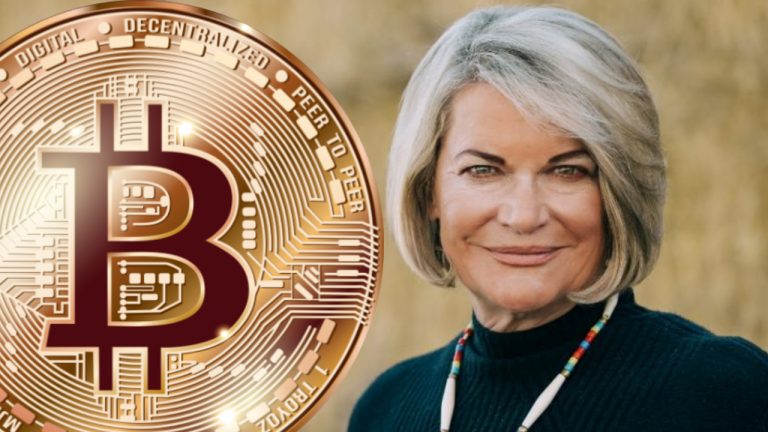
Recent events in Canada sparked a global conversation about financial censorship and crypto's potential to guard against it.
Amid the barrage of last week’s regulatory news, from rumors of Joe Biden’s upcoming executive order on digital assets to another round of the Russian government’s crypto tug of war, the storyline that was arguably the most consequential for the mainstream narrative on the social effects of crypto has been the one around the Canadian government’s standoff with the Freedom Convoy. The government’s invocation of emergency powers to put down a protest movement — combined with the movement’s financial infrastructure being one of the main attack vectors — has led many observers to appreciate with renewed vigor Bitcoin’s capacity to resist state financial censorship.
If a government as “civilized” as Canada’s can arbitrarily cut off a group it doesn’t like from the financial system, then any state can potentially do the same to any group, the argument goes. While there is, as always, much more nuance to this situation. What matters is a simple, digestible notion with which the global audience walks away from the shocking news. So far, the main takeaway seems to be this: Financial censorship is scary, but crypto offers a way around it.
Canada: Not so polite anymore
A series of protests and blockades against COVID-19 vaccine mandates in Canada has been ongoing since mid-January 2022. By mid-February, the impediment of transport infrastructure and general economic and social costs of the unrest have led the Trudeau government to consider extreme measures, such as the invocation of the never-before-used Emergencies Act to suppress the protests. The measures included broadening the scope of Terrorist Financing rules, specifically targeting payment service providers and crowdfunding platforms that the protestors used. By that time, the Freedom Convoy had amassed a sizeable bag of crypto donations, which the government proclaimed fair game as well.
Jesse Powell, co-founder and CEO of crypto exchange Kraken, condemned the government’s actions but said that if told to freeze assets by police extrajudicially, the platform would “probably consent.” Powell also advised anyone concerned about government overreach to move their funds away from centralized custodians and trade peer-to-peer:
100% yes it has/will happen and 100% yes, we will be forced to comply. If you're worried about it, don't keep your funds with any centralized/regulated custodian. We cannot protect you. Get your coins/cash out and only trade p2p.
— Jesse Powell (@jespow) February 18, 2022
Many of those who condemned the government’s actions as overreach admitted that they were not particularly sympathetic to the protestors’ core message — which is unsurprising given the general unpopularity of anti-vax views among Twitter intellectuals. The general sentiment of the crypto folk, however, was largely in line with the maxim “I disapprove of what you say, but I will defend to the death your right to say it.”
BlockFi: $100 million for a chance to comply
Among the two dominant approaches to financial regulation, thorough rulemaking is costlier than regulation by enforcement. Laying down a comprehensive set of rules takes foresight and a ton of research. The alternative is sketching general boundaries of what is allowed and what isn’t, letting industry participants figure out more specific rules by trial and error. The crypto lending industry has just completed its most expensive trial to date, as BlockFi, one of the leading names in the sector, agreed to pay $100 million to settle charges brought by the Securities and Exchange Commission and 32 state attorneys general.
Previously operating in a gray regulatory zone, the firm has paid a hefty sum to be told what exactly was wrong with its bestselling product, the high-yield BlockFi Interest Account. Having received a few pointers, it will have 60 days to bring the offering in line with the Investment Company Act. BlockFi has already announced plans to roll out its new SEC-compliant lending product, BlockFi Yield. In the next few months, we will find out whether the reward that the company will end up reaping was worth the heavy penalty.
Bills keep coming
Last week in the U.S., federal and state lawmakers alike were hard at work drafting crypto-related bills. Congressperson Warren Davidson introduced the bill titled “Keep Your Coins” to the House. Coming days after the invocation of the Emergencies Act in Canada, the bill proposes to bar U.S. federal agencies from restricting individuals’ crypto transactions and purchase of goods and services for their own use. Representative Josh Gottheimer proposed a nuanced framework for regulating stablecoins, the Stablecoin Innovation and Protection Act. Under the proposed legislation, so-called qualified stablecoins, backed by the Federal Deposit Insurance Corporation in a way similar to fiat deposits, would be exempt from both securities and commodities regulation.
Meanwhile, a group of Wyoming lawmakers proposed authorizing the state to issue its own U.S. dollar-pegged stablecoin. At the same time, the Georgia House of Representatives will consider a bill that would exempt crypto miners in the state from sales tax.








